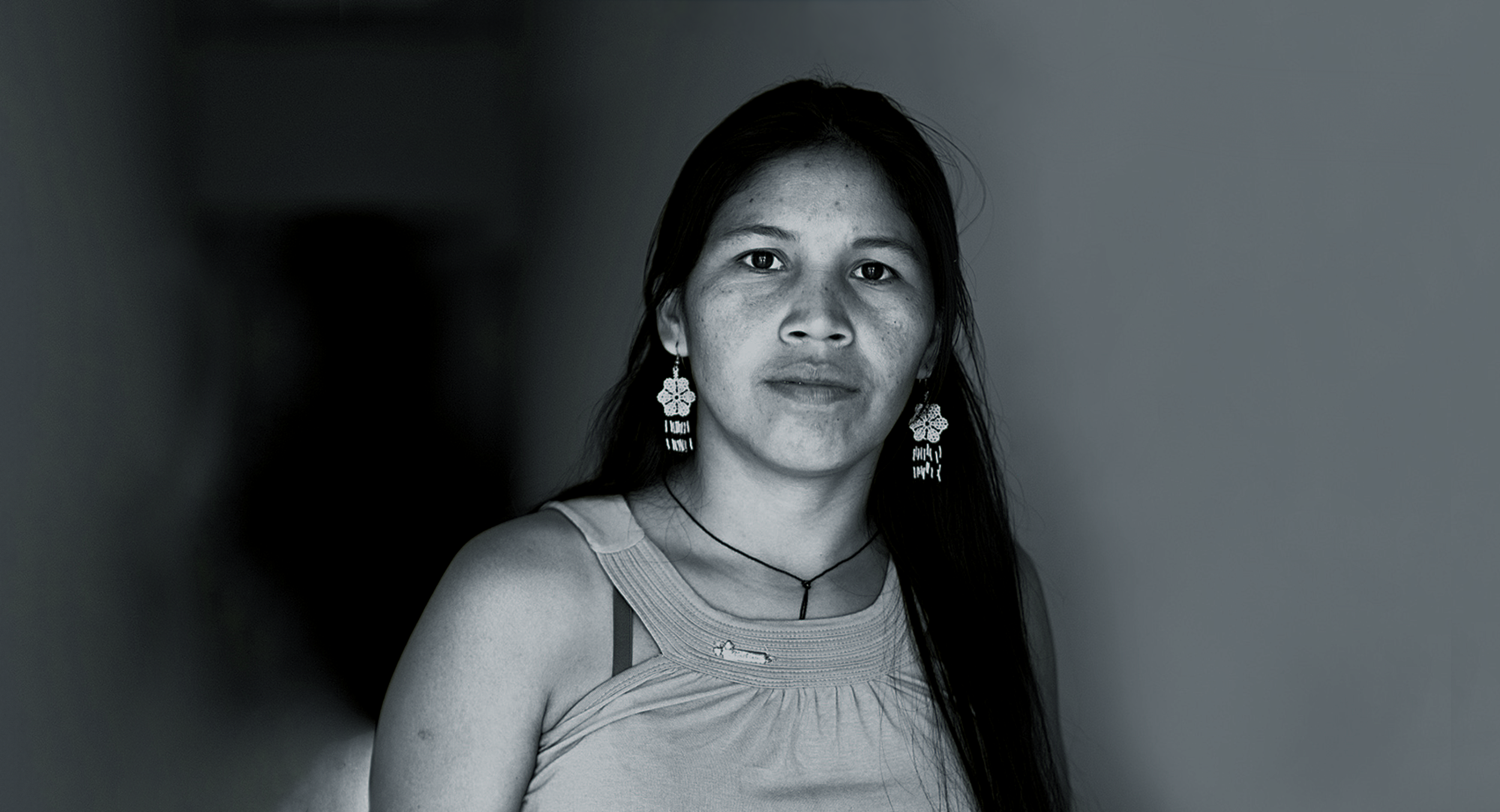
Spotlight.
Kujãesage Kaiabi
Creator in the Spotlight.
Kujãesage Kaiabi
Reclaiming Story, Memory, and Territory through Film
Kujãesage Kaiabi
Filmmaker, Educator
“We film to defend our territory, to strengthen our culture, and to remember our ancestors.”
Kujãesage Kaiabi is a Kaiabi filmmaker whose vision is redefining Indigenous media from within the Xingu Territory in Brazil. As one of the first women from her community to take up the camera, she is forging a cinematic path rooted in ancestry, resistance, and the everyday resilience of her people.
Raised in the Upper Xingu region, Kujãesage or “Cunhã” came to filmmaking not through formal schools, but through community training and grassroots production networks like Instituto Catitu and Rede Xingu+. Her early exposure to storytelling and visual culture sparked a desire to represent her people’s way of life on their own terms.
“It’s very rare to see a woman from my ethnicity working as a filmmaker,”
she explains, yet this hasn’t deterred her - in fact, it has fueled her commitment to create space for Indigenous women in audiovisual production.
Her short film Meriup (2016), which focuses on a traditional Kaiabi ritual, marks one of her earliest works exploring the intersection of culture and resistance. Since then, she has documented community events, protests in Brasília, and rituals that uphold Kaiabi identity. Her current project is a feature-length documentary about her grandfather, Prepori Kaiabi, a renowned shaman and one of the spiritual leaders of the territory. Through this deeply personal lens, she is crafting a cinematic homage to Kaiabi cosmology, oral history, and the ancestral memory of resistance.
What makes Kujãesage’s work so compelling is not only her position within the stories she tells, but also her gentle yet incisive filmmaking style. Her films often blend observational footage with participatory interviews, quiet scenes of intergenerational exchange, and a deliberate use of Kaiabi language and imagery. Whether documenting a chicha-making ceremony or filming the vibrant colours of body painting during a festival, she creates immersive portraits of her community’s worldviews - where memory is political, and cultural survival is a form of resistance.
“We film to defend our territory, to strengthen our culture, and to remember our ancestors,” Kujãesage says. Her work is animated by this sense of urgency. As Brazil faces increasing environmental destruction and governmental hostility toward Indigenous rights, Kujãesage turns to film as a tool of both documentation and defiance. Her lens is not passive - it is a shield, a seed, a call to remember.
Beyond her films, Kujãesage is also a mentor and educator, running audiovisual workshops for youth in villages across the Xingu. As a key member of the Xingu+ Communicators Network, she helps train the next generation of Indigenous storytellers, ensuring that the power of image-making is collectively owned and shared. She has also co-curated exhibitions like Olhos do Xingu (Eyes of the Xingu), bringing Indigenous visual narratives to galleries in Brasília, São Paulo, and even Oslo.
Before embracing film, Kujãesage was already engaged in storytelling through photography and community communication. Her multifaceted practice reflects a belief that Indigenous media must not only portray identity but actively intervene in the politics of representation. Whether on the protest line or inside her territory, her camera stays close to the people, listening to the ground beneath their feet, to the elders, to the children laughing in the background of each shot.
The challenges have been many - gender inequality, lack of resources, and systemic underrepresentation - but Kujãesage has never worked alone. Her practice is deeply collective, nourished by the wisdom of her community and the strength of Indigenous women before her. As she continues working on her documentary about Prepori, she remains anchored in the belief that stories are a way of remembering, healing, and reclaiming.
In Kujãesage Kaiabi’s hands, cinema becomes a living archive of resistance and renewal. Her films do not ask to be explained to the outside world - they speak directly to those who have always known the stories, and to those still learning to listen. Through her camera, the forest speaks, and the Xingu remembers.
More In Spotlight.






